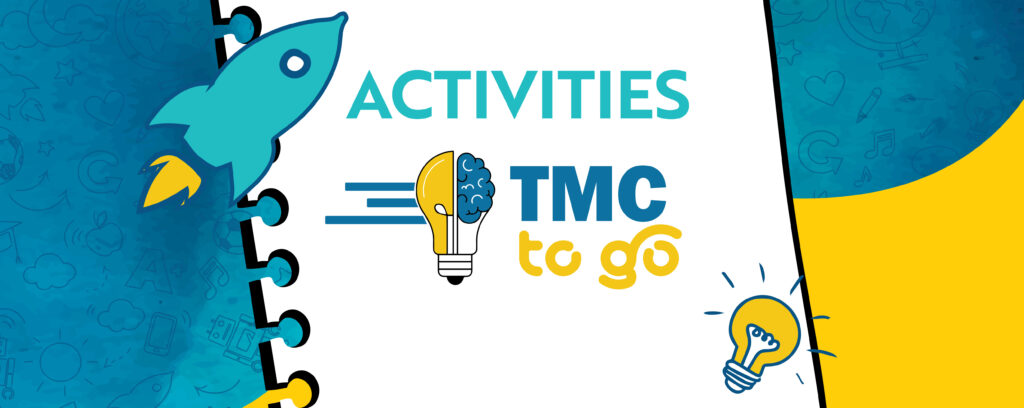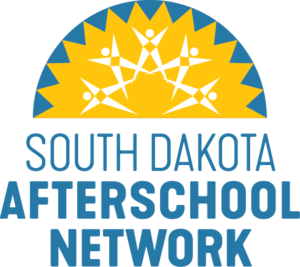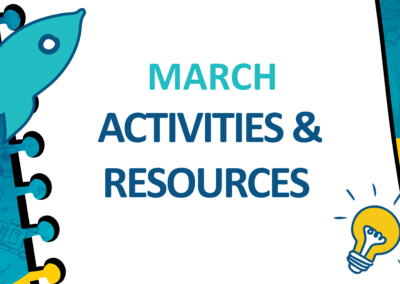Activities
Activities
- Code.org’s Free CS curriculum – Free, flexible, and fun curriculum for every grade level (elementary, middle, and high school), includes lesson plans, videos, slides, assessments, and programming tools.
- Hour of Code Activities – A collection of one-hour tutorials designed for all ages in over 45 languages. Join millions of students and teachers in over 180 countries starting with an Hour of Code!
- What Are the Chances? – This activity includes and introductory video to illustrate the activity. Youth experiment with probability to tell how likely it is that an event will occur. (This means that for certain events you can actually calculate how likely it is that they will happen.) In this activity, youth will do these calculations and then test if your calculations hold true for reality.
- Educator Guide: Make a Planetary Exploration Balloon – This activity for grades 3-12 uses math and engineering to design a balloon and gondola system capable of supporting weight. In this design challenge students will then determine the mass needed to cause the balloon to ascend at a given rate, descend at a given rate, and/or maintain a constant altitude over a set period of time.
____________________________________________________________________________

Click on the links below to access curated mini units of STEM-based curriculum from SDAN.
Activity Guide: Getting Electric
Activity Guide: Inside My Body
Activity Guide: Building Great Structures
Activity Guide: Harnessing Air
Activity Guide: City Build 2040
Activity Guide: Star Wars
Activity Resources: Native American Heritage Resources
Activity Resources: Spooky Science Resources
Resources
Recruit STEM Experts as Volunteers
Less than 50% of high school girls know a woman in a STEM career. Let’s change that – recruit STEM professionals to support the youth you serve today!
The Moonshot helps to connect STEM experts with OST programs! Share your program’s volunteer opportunities for STEM experts to work with your youth today! Register here to find role models and mentors in STEM.
Transformative Practices
- Equity and Inclusion in Computer Science: DEI Bytes – The Alliance for Identity Inclusive Computing Education’s “DEI Bytes” lesson series on YouTube focuses on developing equitable teaching skills for CS education, including topics on ableism, unconscious bias, and computing access.
- Engineering Mindsets/Computer Science: AI 101 for Teachers – This is a free, foundational online learning series for educators interested in AI. The series features lessons from Code.org, ETS, ISTE and Khan Academy to demystify AI, explore responsible implementation, address bias, and showcase how AI-powered learning can revolutionize.
- Engineering Mindsets/Computer Science: Teach Computer Science & Coding to Kids – This Google sponsored site supports educators to engage youth in coding activities. It’s free, fun, and no computer science experience is required. The lessons are video based and cover a variety of subjects.
- Engineering Mindsets: Free STEM Resources for Girls and Women Who Want to Work in Data Science, Machine Learning and AI – This site lists activities for children, STEM resources especially for girls, math resources, and resources for teens. The resources focus on areas that depend on math and where women are most underrepresented.
- Engineering Mindsets Video: NASA’s Women in STEM 2023 – In this video, NASA celebrates Women’s History Month 2023 by launching a new campaign to mobilize women at NASA to participate in student-centered activities as STEM mentors and role models. A transcript of the video Is available to connect to other resources.
- NGCP Webinar: Meet STEM Picture Book Author and Founder of Let’s Engineer! Sheryl Haft – This webinar is an exciting meet-and-greet event with Sheryl Haft, Founder of Let’s Engineer! and the author of the new book Mazie’s Amazing Machines. The book features dynamic illustrations, a fun fold-out spread, and even a QR code to meet Mazie in augmented reality 3-D that is sure to inspire budding engineers and creative out-of-the-box thinking. Join the event live (09/28/2023) or watch the recording to learn about activities and discussion prompts to inspire girls and all young children in engineering!
- Role Models Assets from the IF/THEN® COLLECTION – These assets featuring IF/THEN® Ambassadors, Siobahn Day Grady, Assistant Professor Information Science/Systems and Bea Mendez Gandica, Program Manager and Founder, can be used in marketing, presentations, social media, and conference presentations.









